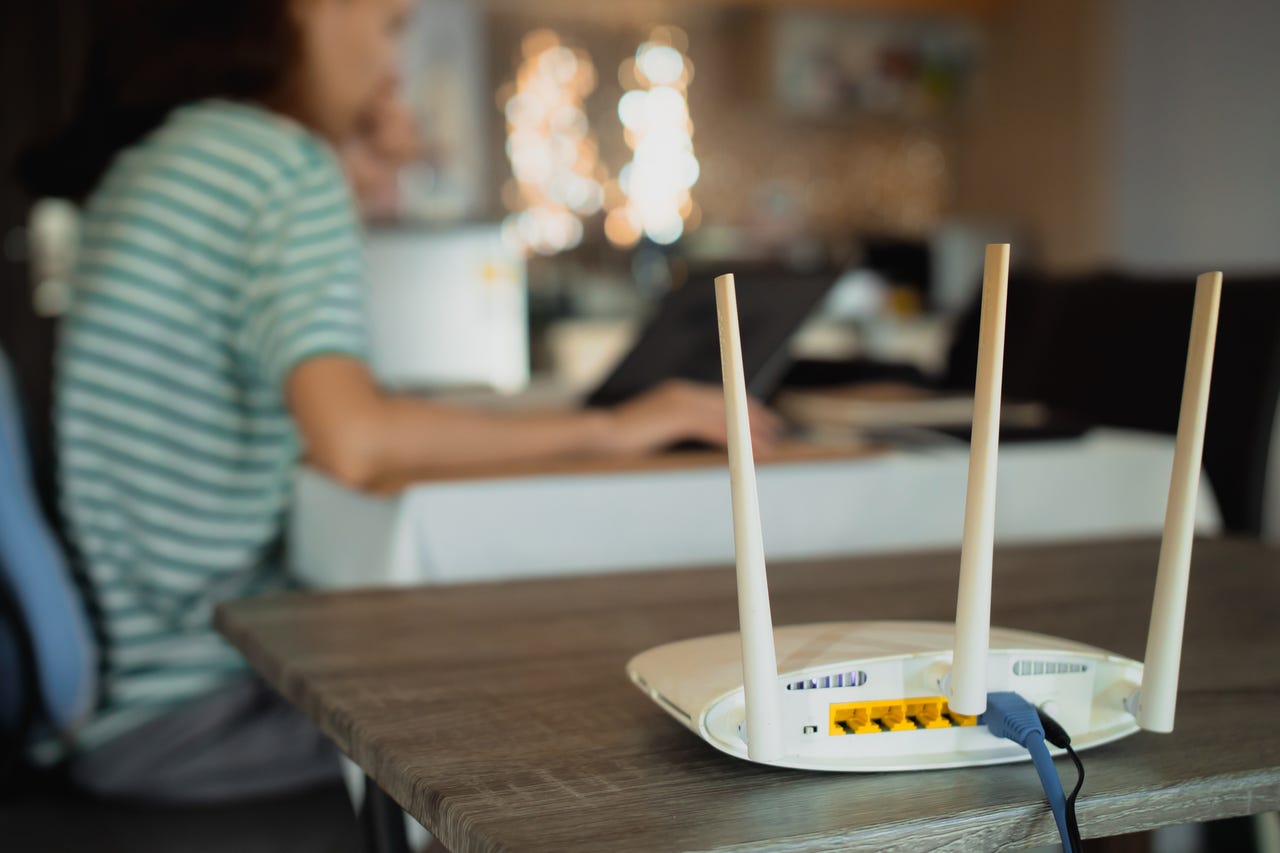































 Image: Getty Images/trumzz
Image: Getty Images/trumzz Your router comes with its own embedded firmware to control how the device works. And just as you should regularly update your PC's operating systemandother software, so too should you update your router's firmware. A firmware update can bring with it new features and bug fixes, as well as security patches to guard against the latest malware and other risks.
Also: The best Wi-Fi routers right now
Every brand of router offers its own unique firmware with different layouts, settings, and options. I'll go through the steps on a Netgear Orbi mesh system. But the general process for updating the firmware is the same no matter which product you own.
Also, many routers will automatically update the firmware, especially to apply a security patch in the event of newly discovered malware. However, you should still check your router periodically to make sure that you're running the most up-to-date firmware.
First, you'll need to sign into your router's firmware by entering its name or IP address in a browser. Typically, the IP address assigned to your router is 192.168.1.1. However, that's not always the case, so you may want to double-check the address.
In Windows 10 or 11, click the Search field or button and typecmdto open a command prompt. At the prompt, type ipconfig. Look for the section for your default adapter -- either Ethernet or Wi-Fi. The address assigned to Default Gateway is the one for your router.
Check your IP address via ipconfig.
Image: Screenshot by Lance Whitney/Alternatively, you can find your router's IP address directly in Windows. In Windows 10, go toSettings > Network & Internet > Statusand click the link forView hardware and connection properties. In Windows 11, go toSettings > Network & internet > Advanced network settings > Hardware and connection properties. Check the entry for Ethernet or Wi-Fi and look for the IPv4 address or IPv4 default gateway to find your router's IP address.
Find you router's IP address in Windows.
Image; Screenshot by Lance Whitney/Fire up your favorite browser and type the IP address in the address field. You'll then be prompted to enter the username and password for your router. Hopefully, you know the credentials so that you can gain access. If not, the process is a bit more challenging.
If you never changed the username and password from their default values, you can search online for the name of your router followed by the wordsusername and passwordas inNetgear router username password. The search results should indicate the default name and password. Otherwise, most routers offer a password-recovery feature that resets the username and password back to the default values.
After logging into your router, look for the setting for firmware update and select it. On my Netgear router, the setting was listed under Administration.
Check for the firmware update setting.
Image; Screenshot by Lance Whitney/At that point, your router may automatically check for any updates, or you might have to click a button to manually check for them. Either way, allow the process to run to see if any updates are waiting for you. If the status indicates that an update is available, click the Update or Apply button to download and install it.
Check for firmware updates.
Image: Screenshot by Lance Whitney/Allow the update to install. During that time, your router will be inaccessible and your connection offline. After the installation is complete, you should see the latest update listed.
Install the update.
Image: Screenshot by Lance Whitney/Another way to download a new firmware version is through the web. Most router vendors have a site through which you can access downloads, including new firmware. To check this, you'll typically need the model number for your router.
Also: How to set up a VPN on your router
Browse to the vendor's website and enter the model number in the request field. Head to the downloads area and click the Downloads button to grab the latest firmware. Extract the downloaded file if it's packaged as a ZIP archive. You should find an IMG file or similar file in the extracted content.
Download the latest firmware from the web.
Image; Screenshot by Lance Whitney/Log into your router's firmware and go to the Firmware Update section. Look for a manual update option. Click the button to browse to the IMG file or other file and then upload it. Click the Update button to install the new firmware.
Upload and install the latest firmware.
Image: Screenshot by Lance Whitney/However you look for a new firmware update, try to do this on a regular basis, maybe every few months or so. Also, some cyber criminals like to launch malware designed to infect routers. Stay alert to any news about new malware specifically targeting routers. If you see something concerning in the news, check your router or your vendor's website to see if a new firmware version with a security patch is available and then apply it as soon as you're able.
 Etiquetas calientes:
Red de redes
Etiquetas calientes:
Red de redes